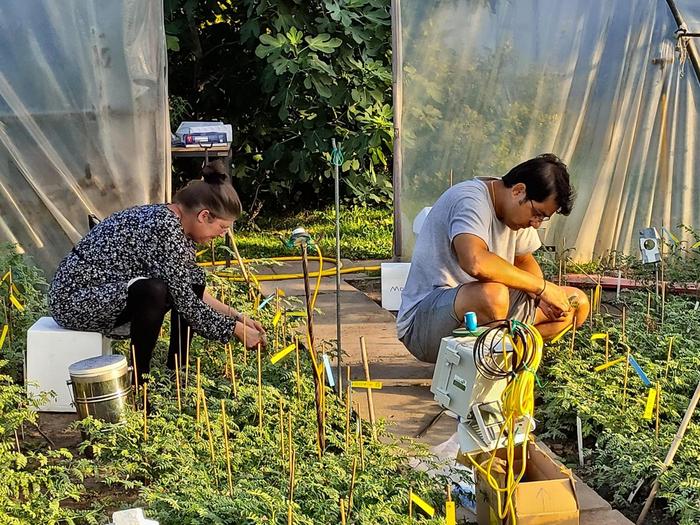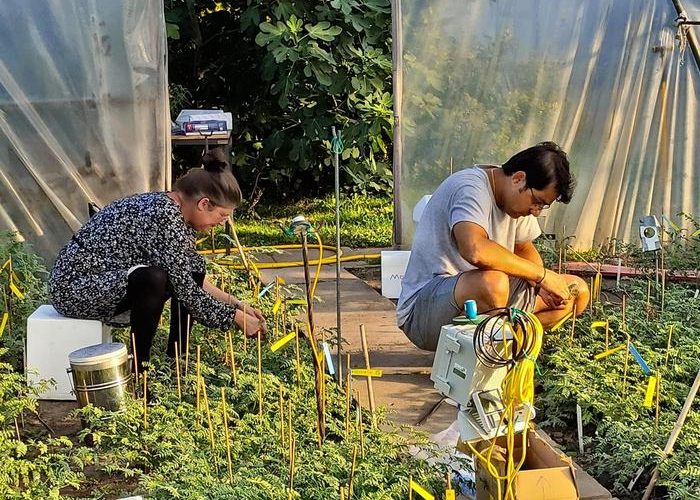New research reveals chickpeas as a sustainable solution for drought resilience

An international study highlights the potential of chickpeas to bolster food security in urban areas, showcasing their drought resistance and high protein content.


Authors of the study Anke Bellaire and Arindam Ghatak collecting chickpea leaves from the field. Credit: Wolfram Weckwerth
Climate change is significantly affecting food security, particularly in Central Europe, where long periods of drought stress have become increasingly common. In response to this pressing issue, an international research team led by molecular biologist Wolfram Weckwerth at the University of Vienna has conducted a pivotal study exploring the natural variation among different chickpea genotypes and their resistance to drought stress.
The findings were recently published in the specialist magazine The Plant Biotechnology.
The study sheds light on the decline of plant genetic diversity, which poses a major threat to plant productivity and harvests. Despite the existence of around 7,000 edible crops, two-thirds of global food production relies on just nine species.
“This narrow genetic base can have several negative consequences, such as increased susceptibility of plants to diseases and pests, reduced resistance to factors such as drought and climate change, and increased economic fragility,” explains Weckwerth. He emphasises the importance of maintaining genetic diversity in agriculture to adapt to future climate challenges.
Currently, chickpeas are not among the primary crops in global diets. However, the research team conducted field experiments in urban Vienna, growing various chickpea varieties under drought conditions. Their results indicate that chickpeas, a high-protein legume, can be a viable alternative in grain farming systems, especially in urban areas.
“The different varieties and wild types show very different mechanisms to deal with persistent drought stress. This natural genetic variability is particularly important to withstand climate change and ensure the survival of the plant,” says Weckwerth.
The study employed a stress susceptibility index (SSI) to evaluate the impact of drought on yield, identifying genotypes that perform best and worst under stress.
Lead author Palak Chaturvedi further elaborates on their methodology, stating, “In our study, we used a stress susceptibility index (SSI) to assess the effects of drought stress on yield,” which enabled the identification of both resilient and susceptible genotypes.
The research utilised advanced techniques, including artificial intelligence and multivariate statistics, to uncover genetic markers that enhance drought resilience.
Weckwerth stated that legumes such as chickpeas, with their high protein content and drought resistance, are a “food of the future,” adding that incorporating a higher proportion of legumes into a country’s agricultural systems improves the overall efficiency of nitrogen use.
Source: newfoodmagazine.com

